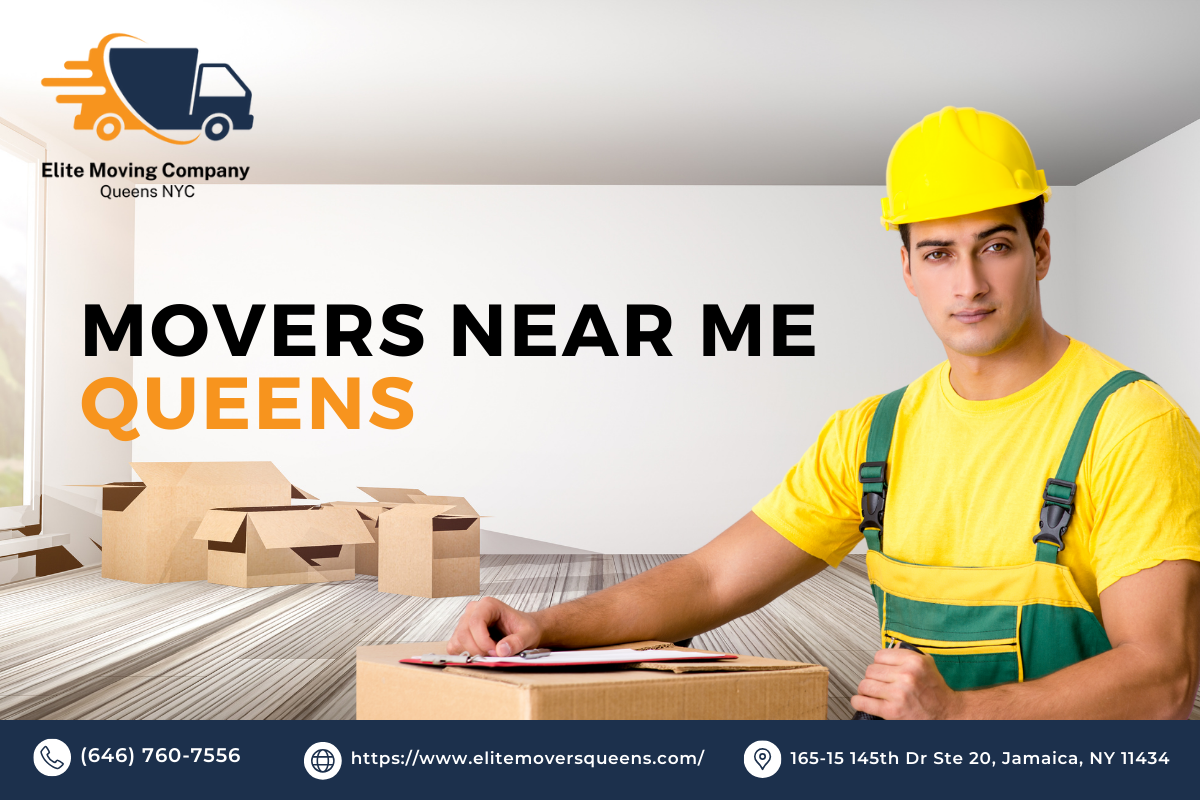
Long Distance Moving: Strategies for Staying on Track with Your Routine

Introduction
Moving can be an overwhelming experience, especially when it involves long distances. Whether you are moving to a new city or a different state, the process requires careful planning and organization to ensure a smooth transition. In this article, we will explore effective strategies for staying on track with your routine during a long distance move. From finding reliable movers to maintaining your daily schedule, we will provide expert tips and insights to make your move as stress-free as possible.
Table of Contents
Finding Reliable Movers
One of the most crucial aspects of a successful long distance move is finding reliable movers that you can trust with your belongings. It's essential to do thorough research and choose a reputable moving company that offers high-quality services at a reasonable price.
Here are some tips for finding reliable movers:
- Ask for recommendations from friends, family, or colleagues who have recently moved.
- Read online reviews and check the ratings of different moving companies.
- Request quotes from multiple movers to compare prices and services.
- Ensure that the moving company is licensed and insured.
- Verify if the movers have experience with long distance moves.
Planning Ahead
To stay on track with your routine during a long distance move, it's essential to plan ahead and create a detailed timeline for each step of the process. Start planning as early as possible to avoid last-minute stress and ensure everything goes smoothly.
Here are some key points to consider when planning ahead:
Organizing Your Belongings
Before you start packing for your long distance move, it's crucial to organize your belongings and declutter unnecessary items. This will not only make the packing process more manageable but also reduce the overall cost of your move.
Here are some tips for organizing your belongings:
- Sort your belongings into categories such as keep, donate, sell, or discard.
- Hold a garage sale or sell unwanted items online to make some extra money.
- Donate gently used clothes, furniture, or appliances to local charities.
- Properly dispose of hazardous materials that cannot be transported.
Packing Tips and Tricks
Packing efficiently is key to a successful long distance move. By using the right techniques and strategies, you can save time, space, and ensure that your belongings arrive safely at your new home.
Here are some packing tips and tricks:
Hiring Professionals vs. DIY
When planning a long distance move, you may wonder whether it's better to hire professionals or handle everything yourself. While DIY moving can save money upfront, it comes with its own set of challenges and risks.
Here are some factors to consider when deciding between hiring professionals or doing it yourself:
Scheduling Services
To ensure a smooth transition during your long distance move, it's crucial to schedule various services ahead of time. This includes setting up utilities, transferring memberships, and finding local service providers in your new area.
Here are some essential services to consider:
Managing Finances
Moving can be costly, especially when it involves long distances. Properly managing your finances during this time is crucial to avoid unnecessary stress.
Here are some tips for managing finances during a long distance move:
- Create a detailed budget that includes all moving-related expenses.
- Keep track of receipts and invoices for tax purposes or reimbursement.
- Consider selling unwanted items to generate extra income.
- Research cost-saving measures such as moving during off-peak seasons or comparing prices for packing supplies.
Preparing Your New Home
Before you arrive at your new home, it's important to prepare the space for a smooth transition. This includes cleaning, inspecting for any necessary repairs, and ensuring that essential amenities are in working order.
Here are some tasks to complete before moving in:
- Clean the entire house, including floors, windows, and appliances.
- Conduct a thorough inspection for any damages or issues that need to be addressed.
- Test utilities such as electricity, water, heating, and cooling systems.
- Make any necessary repairs or improvements before moving in.
Maintaining Your Routine
Moving to a new location can disrupt your daily routine. However, by implementing certain strategies and staying organized, you can minimize the impact on your schedule.
Here are some tips for maintaining your routine during a long distance move:
- Pack an essentials box with items you'll need immediately upon arrival.
- Set up a temporary workspace to continue working remotely if needed.
- Establish a schedule for unpacking and stick to it.
- Prioritize self-care activities such as exercise, relaxation, and healthy eating.
- Communicate with family members about their expectations and routines.
Setting Up Utilities
Setting up utilities in your new home is an essential step to ensure comfort and functionality from day one. It's important to research utility providers in your new area and schedule the setup ahead of time.
Here are some common utilities to consider:
Exploring Your New Neighborhood
Moving to a new neighborhood offers exciting opportunities for exploration and discovery. Take the time to familiarize yourself with the area and all it has to offer.
Here are some ways to explore your new neighborhood:
Finding Local Services
When you move to a new area, finding reliable local services is essential for your day-to-day needs. From healthcare providers to grocery stores, it's important to research and establish relationships with trusted service providers.
Here are some essential local services to consider:
Updating Your Address
Updating your address is an important task that should not be overlooked during a long distance move. Failing to update your address can result in missed mail or important documents being sent to the wrong location.
Here are some key entities to notify about your change of address:
Transferring Memberships and Subscriptions
If you have memberships or subscriptions tied to your current location, it's important to transfer or cancel them before the move. This includes gym memberships, magazine subscriptions, online streaming services, etc.
Here are some steps to take when transferring memberships and subscriptions:
Adapting to the Change
Moving to a new location brings about significant changes in various aspects of your life. It's important to embrace these changes and adapt to your new surroundings.
Here are some tips for adapting to the change:
- Keep an open mind and be willing to explore new opportunities.
- Embrace the local culture and traditions.
- Establish new routines that align with your new environment.
- Seek out social activities or groups that share your interests.
Staying Connected with Loved Ones
Moving long distance doesn't mean you have to lose touch with loved ones. With today's technology, staying connected has never been easier.
Here are some ways to stay connected with loved ones during a long distance move:
Taking Care of Yourself
Amidst the chaos of a long distance move, it's important not to neglect self-care. Taking care of yourself physically and mentally will help you navigate the challenges more effectively.
Here are some self-care tips during a long distance move:
- Get enough sleep and maintain a regular sleep schedule.
- Eat nutritious meals and stay hydrated.
- Engage in physical activity or exercise regularly.
- Practice relaxation techniques such as deep breathing, meditation, or yoga.
Dealing with Stress and Anxiety
Moving can be stressful, but there are strategies you can employ to manage stress and anxiety effectively.
Here are some tips for dealing with stress and anxiety during a long distance move:
- Take breaks when needed and engage in activities that help you relax.
- Practice mindfulness by focusing on the present moment rather than worrying about the future.
- Seek support from friends, family, or professional counselors if needed.
- Utilize stress-relief techniques such as deep breathing exercises or journaling.
Overcoming Challenges
Moving long distance is not without its challenges. However, by adopting a positive mindset and being prepared, you can overcome these challenges more effectively.
Here are some common challenges of long distance moving and how to overcome them:
Creating a New Routine
Establishing a new routine is essential for maintaining productivity and stability after a long distance move.
Here are some tips for creating a new routine:
- Start with small tasks and gradually build up to more complex ones.
- Prioritize your most important daily activities.
- Set realistic goals and expectations for yourself.
- Be open to adjusting your routine as needed.
Exploring Your New Surroundings
Moving to a new location offers endless opportunities for exploration. Take the time to discover all that your new surroundings have to offer.
Here are some ways to explore your new surroundings:
- Visit local attractions, parks, museums, or historical sites.
- Try out different restaurants, cafes, or bars in your area.
- Attend community events or festivals to immerse yourself in the local culture.
Building a Support Network
Building a support network in your new location will help you feel more connected and supported during the transition.
Here are some ways to build a support network:
Getting Involved in the Community
Getting involved in the community is a great way to meet new people, contribute to your new surroundings, and create a sense of belonging.
Here are some ways to get involved in the community:
- Volunteer for local organizations or charities.
- Attend town hall meetings or community events.
- Join local sports teams or recreational clubs.
Celebrating Your Accomplishment
Moving long distance is no easy feat, and it's important to celebrate your accomplishment once you've settled into your new home.
Here are some ways to celebrate your move:
Conclusion
Moving long distance can be a challenging yet exciting experience. By following these strategies for staying on track with your routine, you can navigate the process more smoothly and ensure a successful transition. From finding reliable movers to adapting to your new environment, prioritize organization, planning, and self-care. Remember that moving is an opportunity for personal growth and exploration. Embrace the change, stay positive, and enjoy the adventure that awaits you in your new home.